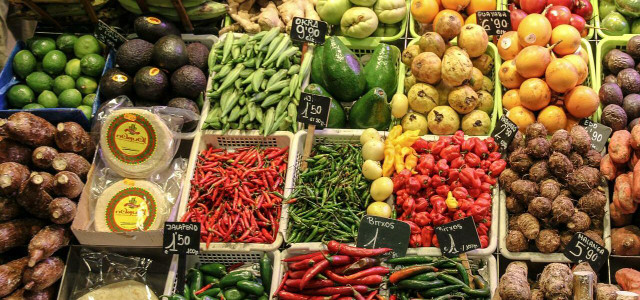Prebiotics are a food source for your guts microorganisms. We’ll tell you the health benefits of prebiotics, as well as nine natural prebiotic foods to aid your gut health.
Prebiotics are specialised plant fibres that provide your gut with healthy bacteria to ensure optimal gut function. Prebiotics are non-digestible compounds within our food, and they work by stimulating the growth of healthy bacteria in the gut, which helps to aid digestion.
Here’s how that works: Prebiotics undergo bacterial fermentation in the gastrointestinal tract. As a result, this affects the composition of gut microbiome and their metabolic activities, which provides us with health benefits. As well as promoting gut health, prebiotics have many health benefits in general, including reducing inflammation, reducing the risk of cardiovasular disease and preventing obesity.
Although the side effects of prebiotics are rare, some people may experience stomach issues such as bloating, constipation and diarrhoea, especially if you have irritable bowel syndrome (IBS).
There are many foods, including fruits and vegetables, that naturally contain prebiotics. Getting prebiotics from whole foods will provide your body with the vitamins, minerals and antioxidants it needs to stay healthy.
1. Legumes
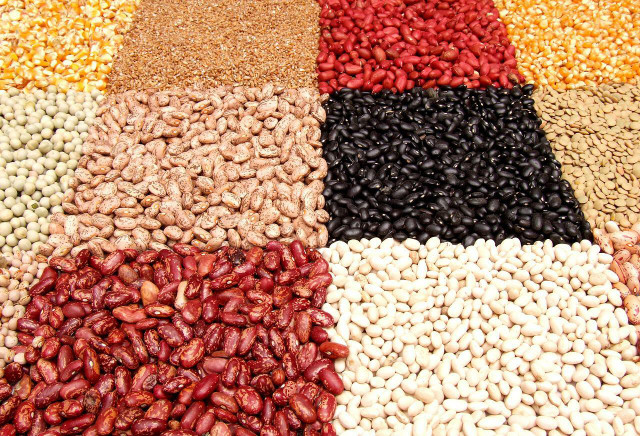
(Foto: the prebiotic fiber inulinCC0 / Pixabay / arielnunezg)
There are many different types of legumes, including chickpeas, lentils, or red kidney beans, and they are rich in prebiotic carbohydrates. Legumes are also rich in protein, low digestible carbohydrates, and range of micronutrients. A 2019 study shows that adding legumes such as chickpeas into your diet can improve your overall gut health, and in particular can regulate intestinal movement, and prevent constipation, as well as increasing mineral absorption and reducing the obesity risk by regulating blood glucose and cholesterol levels.
You can eat legumes raw from a can, and add them to salads, for example our vegan chickpea salad. Legumes are also the perfect ingredient to add to curries or stews. Using chickpeas, you can also make your own homemade hummus.
2. Chicory Root Is a Natural Source of Prebiotics
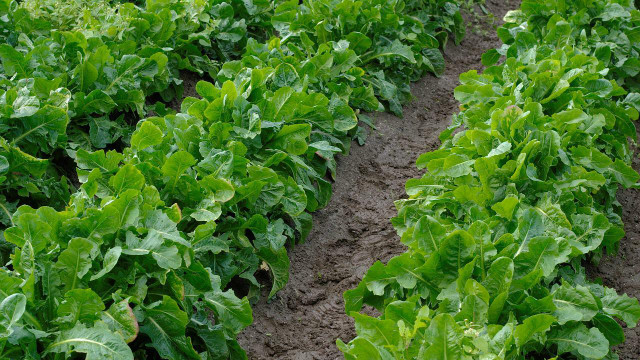


(Foto: CC0 / Pixabay / David_Will)
Chicory is a woody plant from the daisy and sunflower family, and it has bright blue flowers. The root of the plant is typically baked, ground and used as a coffee substitute. Due to its high concentration of inulin, which is a prebiotic compound, it is also commonly used as a fibre additive. 100 grams of chicory root contain around 40 grams of inulin. Inulin has many health benefits, including regulating blood sugar levels to delay or prevent the early onset of diabetes, as well as aiding digestive health such as improving bowel movements.
Chicory root has a bitter taste and so it is best to either use it as a coffee substitute, or you can use ground chicory root in baking, or by adding it to a smoothie.
3. Garlic
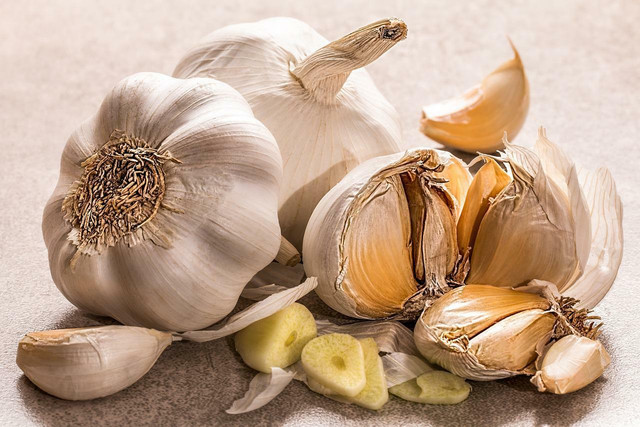


(Foto: CC0 / Pixabay / stevepb)
Garlic is another food that naturally contains prebiotics. A 2014 study shows that garlic has many health benefiting effects, including preventing diseases such as cancer and cardiovascular and metabolic disorders, as well as regulating blood pressure. Garlic is high in antioxidants which gives it anti-inflammatory properties.
Garlic acts as a prebiotic by promoting the growth of beneficial Bifidobacteria in the gut through the fermentation process of altering the gut microbiome, and this makes it a great health food for preventing gastrointestinal diseases. Bifidobacteria is a healthy bacteria that is known to help with diarrhoea, constipation, and other intestinal disorders. Whereas garlic is known to stimulate the growth of Bifidobacteria, other prebiotics promote the growth of other types of healthy bacteria.
Garlic is an extremely versatile food and it can be added to most meals including salads, soups, pasta sauces and stir fries. Try our delicious wild garlic pizza recipe. Wild garlic is a close relative to garlic, both belonging to the genum Allium. Raw garlic is also safe to eat, although it has a much stronger taste. You can add raw garlic to dips and dressings, as well as in sauces like pesto.
4. Oats: Natural Prebiotics for Breakfast
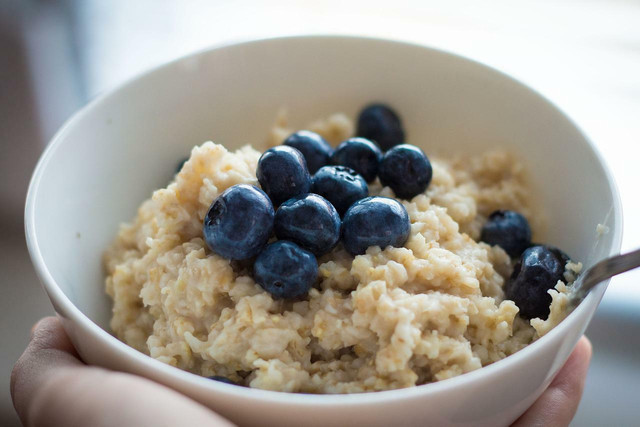


(Foto: CC0 / Pixabay / iha31)
Oats are a superfood and they contain the highest amount of the prebiotic beta-glucan. Studies show that adding oats to your diet can be beneficial for your overall health, including helping to lower your blood cholesterol levels, as well as aiding digestive health by encouraging the growth of beneficial gut bacteria.
Oats can be eaten at any time during the day, and there are many ways to incorporate them into your diet. Try our overnight oats or vegan baked oats recipe for an easy breakfast. For a healthy snack, try our easy homemade oatmeal cookies.
5. Cocoa
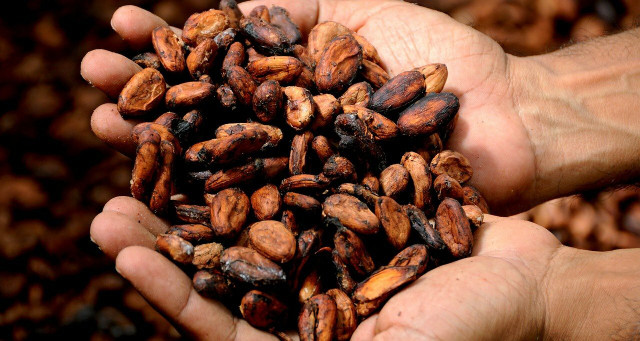


(Foto: CC0 / Pixabay / 5671698)
Cacao contains prebiotic fibres to aid your gut health. Cocoa powder is made by crushing cocoa beans from the Theobrama cacao tree, and removing the fat or cocoa butter. Cocoa is a rich source of polyphenols such as flavanols, which promote healthy gut function by stimulating the growth of beneficial bacteria.
Cocoa is also rich in antioxidants, that act as free radicals in the body and help to fight the effects of oxidative stress due to their anti-inflammatory properties. A 2011 study has found that cocoa can have many other health benefits on human health, including protecting nerves from injury and inflammation, as well as improving cognitive function and mood.
The most popular way to use cocoa powder is to make hot chocolate. Try our delicious homemade hot cocoa recipe. You can also add cocoa powder when baking in order to get the health benefits.
6. Asparagus
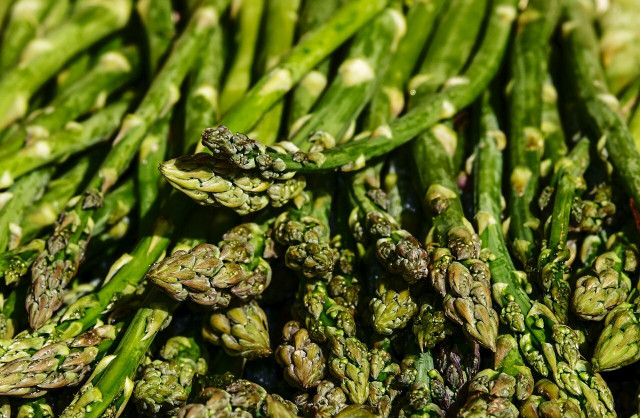


(Foto: CC0 / Pixabay / 1195798)
Asparagus is another vegetable that is a rich source of prebiotics. Like chicory root, asparagus also contains the prebiotic inulin, and studies show that this has numerous health benefits including regulating the bodies glucose and insulin levels, as well as promoting a healthy gut. Inulin in particular helps to promote the growth of healthy gut bacteria including Bifidobacteria.
Asparagus is a non-starchy vegetable that you can sauté with other vegetables, and there are lots of vegan options that go well with asparagus. Try making our vegan asparagus quiche recipe, or our vegan asparagus soup. If you are looking for other ways to cook asparagus, read our guides:
- How to Boil Asparagus: From Buying to Cooking the Vegetable
- Grilled Asparagus in Oven: Easy Recipe
- Steaming Asparagus in Microwave: Is it Really a Good Idea?
7. Dandelion Greens: Natural Prebiotics You Can Harvest in the Wild



(Foto: CC0 / Pixabay / InspiredImages)
Dandelion greens grow wild almost everywhere, and they are a great source of prebiotics. They have a naturally tangy and bitter taste. Dandelion greens are rich in vitamins and minerals, including magnesium, calcium, vitamin C, and vitamin K. Dandelion greens promote a healthy gut as they are very high in fibre, in particular the prebiotic inulin. A 2016 study shows that dandelion greens — similar to other veggies that contain inulin — have many health benefits, including regulating blood sugar and insulin levels, as well as increasing friendly bacteria in the gut to reduce issues such as constipation.
You can eat dandelion greens in many ways, including adding them to smoothies and green juices. There are many benefits to green juice, but keep in mind that juicing removes some of the prebiotic property. Another idea for adding dandelion greens to your diet is to use them to make tea: try our healthy dandelion tea recipe.
8. Jerusalem Artichokes
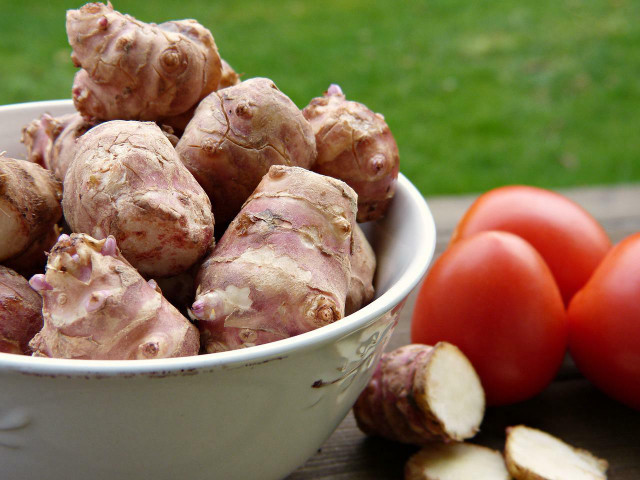


(Foto: CC0 / Pixabay / silviarita)
Jerusalem artichokes, also known as sunchokes, are one of the most prebiotic-rich foods, as inulin is particularly concentrated in sunchokes. The vegetable provides almost two grams of inulin-rich dietary fiber per 100 grams. Jerusalem artichokes provide many other health benefits, including helping to strengthen your immune system and prevent certain metabolic disorders.
You can cook Jerusalem artichokes in a variety of ways, including roasting, steaming, boiling or sautéing them. Try our Scafata recipe, a light stew made of artichoke, spring vegetables, including fava beans, peas, and Swiss chard. Jerusalem artichokes are very versatile, and you can even eat them raw.
9. Wild Blueberries
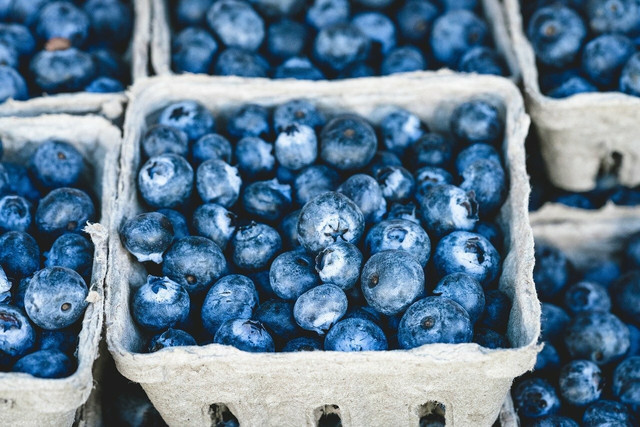


(Foto: CC0 / Pixabay / elizadean)
Wild blueberries great natural source of prebiotics. A 2020 study shows that blueberries provide many health benefits including reducing the risk of cardiovascular disease, and type 2 diabetes, as well as improving weight maintenance. The polyphenols in blueberries help to fight inflammation and support healthy digestion by acting as a source of prebiotic.
You can consume blueberries fresh, frozen or dried, as well as in a supplement form. Blueberries are the perfect fruit to add to smoothies or juices, as well as using them as a topping for porridge or oats. You can also use blueberries in baking, try our yummy blueberry zucchini bread.
Read more:
- How to Lower Your Cortisol Fast – Naturally
- Sauerkraut Juice: Uses, Benefits, and Side Effects
- Old Fashioned vs. Quick Oats? The Difference Explained
Important Information regarding Health-related Topics.
** Links to retailers marked with ** or underlined orange are partially partner links: If you buy here, you actively support Utopia.org, because we will receive a small part of the sales proceeds. More info.Do you like this post?






